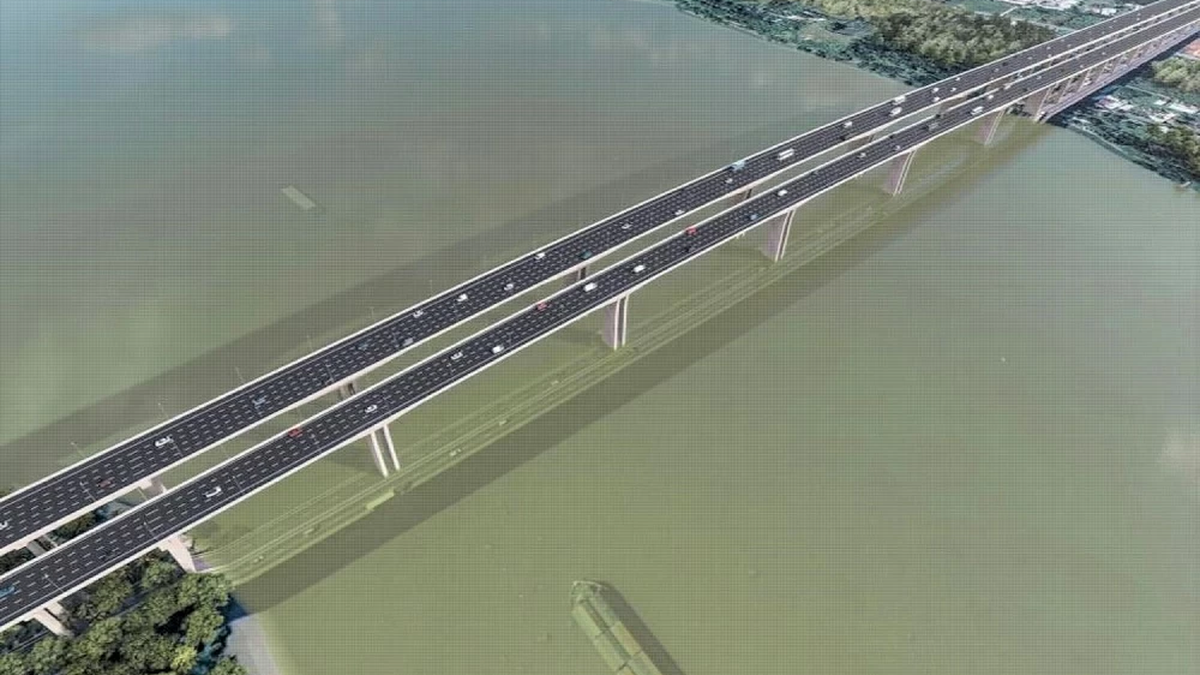This is a new point in the draft amendment to Decision 24/2017 on the structure of adjusting average retail electricity prices, compared to previous drafts for which the Ministry of Industry and Trade sought comments.
Currently, the Ministry of Finance is responsible for coordinating with the Ministry of Industry and Trade in regulating electricity prices, according to Decision 24 applied from 2017 to present.
Previously, during the process of drafting the revised Decision 24, the Ministry of Finance proposed not to specify their coordination responsibilities in the draft Decision and to remove the content "Vietnam Electricity Group (EVN) sends a report on electricity price plans to the Ministry of Finance". Instead, the ministry would only coordinate in cases of unusual fluctuations or major impacts.
In the latest draft, the Ministry of Industry and Trade still retains the coordination responsibility of the Ministry of Finance, but specifically the role of this Ministry is "the state management agency for prices". The Ministry of Industry and Trade also proposes that relevant ministries and agencies participate and coordinate with related contents, according to "functions and tasks".
At the same time, to make the process of considering electricity price adjustment more transparent, the Ministry of Industry and Trade wants to add the responsibility of the General Statistics Office in assessing the impact of electricity price adjustment on the macro economy . EVN will provide relevant data so that this agency has a basis for statistics and evaluation.
The Ministry of Industry and Trade will still be responsible to the Government for state management of electricity and electricity use, including electricity prices. That is, this Ministry is the agency that guides EVN in calculating the average electricity price, adjusting electricity prices, and presiding over inspection and supervision.

EVN Hanoi workers inspect power lines, June 2023. Photo: EVN Hanoi
In addition, the draft also adds general provisions on cases where the Government or the Prime Minister directs research and development of a plan to support electricity bill reduction in a temporary period, ensuring macroeconomic stability.
In this draft, the authorities still maintain the proposal that electricity prices include additional costs that have not been previously calculated, such as exchange rate differences. The time for adjusting electricity prices is expected to be shortened from 6 months to 3 months at a time. That is, there will be 4 changes each year and prices will be updated quarterly according to electricity generation costs.
The proposal that the average retail electricity price will increase or decrease with a specific amplitude is also kept as in the latest draft. Specifically, in case the input parameters of the stages (generation, transmission, distribution...) cause the average electricity price to decrease by 1% or more compared to the current average price, EVN is responsible for reducing the price at the corresponding level. This group will prepare a report to the Ministry of Industry and Trade and the Ministry of Finance for inspection and supervision.
On the contrary, when the average electricity price increases by 3% or more compared to the current price, EVN is allowed to adjust it up. In case the average electricity price needs to be adjusted up by 10% or more compared to the current level, affecting the macro economy, the Ministry of Industry and Trade will preside over, inspect, review, and consult the Ministry of Finance and relevant agencies.
The draft also states that, if necessary, the ministry will require EVN to hire an independent consultant to review the electricity production and business cost reports of the group and its member units.
Source VNExpress
Source





























![[Photo] National Assembly Chairman attends the seminar "Building and operating an international financial center and recommendations for Vietnam"](https://vphoto.vietnam.vn/thumb/1200x675/vietnam/resource/IMAGE/2025/7/28/76393436936e457db31ec84433289f72)






































































Comment (0)